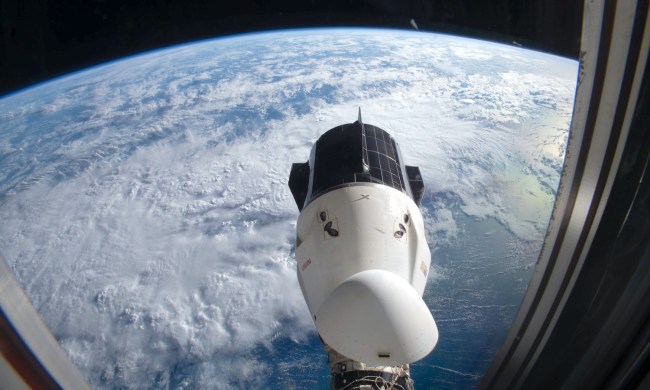A trio of crew members are on their way to the International Space Station (ISS) on board a Soyuz spacecraft following a rescheduled launch spurred by an electrical issue. The Russian Soyuz MS-25 was originally supposed to launch on Thursday, March 21, but the launch was scrubbed at the last minute due to a problem with the launch vehicle.
The launch was rescheduled for Saturday, March 23, with the rocket lifting off from the Baikonur Cosmodrome in Kazakhstan at 8:36 a.m. ET. The crew are now safely in orbit and are on their way to the ISS, where they should arrive on Monday morning.

The previously planned launch on Thursday was called off just 20 seconds before liftoff, with Russian space agency Roscosmos announcing that the issue was due to a low voltage reading in the rocket’s electrical system. Although there have been issues with Soyuz spacecraft leaking at the ISS recently, it is very rare for an issue with one of these rockets to require a launch postponement.
During the coverage of the successful launch, NASA commentators said that in the intervening time, Roscosmos had replaced batteries in the Soyuz and tested them, which allowed the launch to proceed.
The crew members, NASA astronaut Tracy C. Dyson, Roscosmos cosmonaut Oleg Novitskiy, and spaceflight participant Marina Vasilevskaya of Belarus, will now arrive at the ISS around 11:09 a.m. ET on Monday, March 25, which is four days after their originally scheduled arrival time. The original launch was to use a particularly fast trajectory to travel to the station, allowing them to arrive just a few hours after launch, but with the rescheduled launch time, their journey will now be longer.
When the crew arrives at the ISS, Dyson will begin a six-month stay on the station, joining Expedition 70 and 71. Novitskiy and Vasilevskaya will spend 12 days on the station before returning in the Soyuz MS-24, along with NASA astronaut Loral O’Hara. The departure is scheduled for Saturday, April 6, with a parachute-assisted landing in Kazakhstan.
You can watch the arrival of the Soyuz at the space station, as well as the opening of the hatch and welcoming of the crew members, via NASA TV. Coverage begins at 10:15 a.m. ET on Monday, March 25.



